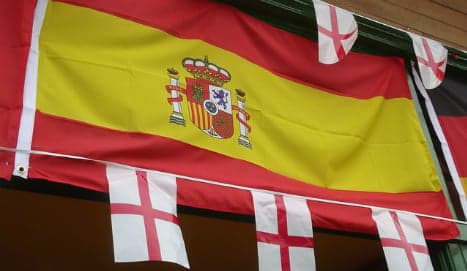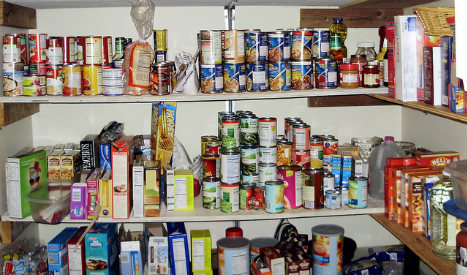Ten brilliant Spanish reinventions of everyday English words

The English language is sweeping across Spain, but not always in the way you might expect. The Local looks at how Spaniards are taking English words, changing their meanings and using them in a way that would have Shakespeare turning in his grave.
Footing

Photo: Martin Alvarez Espinar/Flickr
The noun for 'jogging'. Hacer footing means to go jogging.
Parking

Photo: Jim Pennucci/Flickr
Widely used to refer to a car park or parking lot. E.g "I can’t find a parking anywhere!"
Hacer zapping

Photo: MjZ Photography/Flickr
Used to refer to channel-hopping or channel-surfing.
Crack

Photo: Pierre-Phippe Marcou/AFP
Nothing to do with the drug or a hole of any kind, crack is used in Spanish to describe someone who is great at what they do. So don’t feel offended if a Spaniard calls you a crack, it’s actually quite a compliment!
Gin-tonic

Photo: Robert S. Donovan/Flickr
Instead of calling it ginebra y tónica, the Spanish have adopted the English name for the refreshing alcoholic beverage and just dropped the ‘and’ in the middle.
Esmoquin

Photo: Flashback Tunisie/Flickr
Derived from the English 'smoking jacket', there is no other word in Spanish to refer to a dinner jacket or tuxedo. The French have a very similar version to it but without the 'e' that Spaniards often put in front of English words starting with 's'.
Lifting

Archive photo: Shutterstock
No, this has nothing do with going to the gym, or even putting your back into it. Lifting (as in hacer un lifting) is what Spanish call a face lift.
El Face

Photo: pshab/Flickr
The world's biggest social media site has become so mainstream in Spain that young people often shorten its name to 'El Face'.
El office

Photo: Robert Benner/Flickr
Somewhat confusing that the Spanish use the noun for a workplace to describe a pantry, breakfast room or utility room.
Quiqui

Archive photo: Shutterstock
If your Spanish partner asks whether you want to "echar un quiqui" (pronounced kiki), he or she wants to get down and dirty. This cheeky and light-hearted expression means to have sex and probably comes from the English word "quickie".
Comments
See Also
Footing

Photo: Martin Alvarez Espinar/Flickr
The noun for 'jogging'. Hacer footing means to go jogging.
Parking

Photo: Jim Pennucci/Flickr
Widely used to refer to a car park or parking lot. E.g "I can’t find a parking anywhere!"
Hacer zapping

Photo: MjZ Photography/Flickr
Used to refer to channel-hopping or channel-surfing.
Crack

Photo: Pierre-Phippe Marcou/AFP
Nothing to do with the drug or a hole of any kind, crack is used in Spanish to describe someone who is great at what they do. So don’t feel offended if a Spaniard calls you a crack, it’s actually quite a compliment!
Gin-tonic

Photo: Robert S. Donovan/Flickr
Instead of calling it ginebra y tónica, the Spanish have adopted the English name for the refreshing alcoholic beverage and just dropped the ‘and’ in the middle.
Esmoquin

Photo: Flashback Tunisie/Flickr
Derived from the English 'smoking jacket', there is no other word in Spanish to refer to a dinner jacket or tuxedo. The French have a very similar version to it but without the 'e' that Spaniards often put in front of English words starting with 's'.

Archive photo: Shutterstock

Photo: pshab/Flickr

Photo: Robert Benner/Flickr

Archive photo: Shutterstock
Join the conversation in our comments section below. Share your own views and experience and if you have a question or suggestion for our journalists then email us at [email protected].
Please keep comments civil, constructive and on topic – and make sure to read our terms of use before getting involved.
Please log in here to leave a comment.